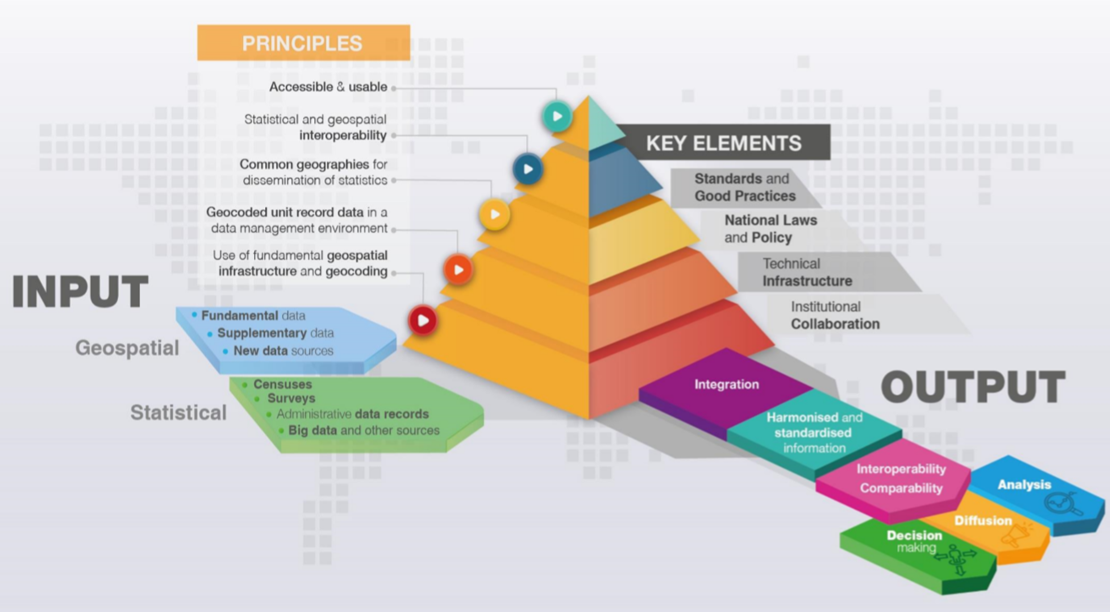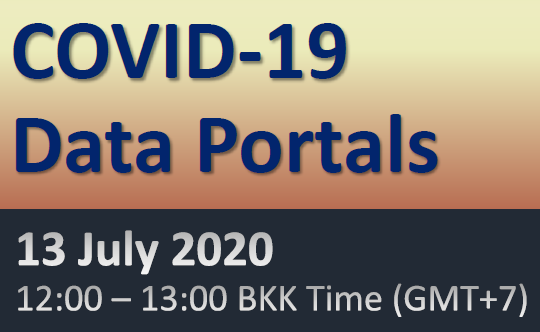
Today, an interesting paper found its way to me: “High demand for local area level statistics – how do National Statistical Institutes respond?” by Marie Haldorson from Statistics Sweden, published in 2019.
Paper indicates why statistical geospatial data integration is valuable and how a country can go about making it happen. It points out that “for National Statistical Institutes looking to improve their capability to produce statistics at the local level, the Global Statistical Geospatial Framework is a starting point that describes the requirements that need to be fulfilled.”
Link to this paper is now shared on Resources page, under Integrating geospatial and statistical information.
Ever thought of designing your own maps and data visualisations? Heard of QGIS and R Studio? Want an idea of how these programs work? Join us as we take you inside the world of integrating geospatial and statistical data.
This Stats Café features:
- Analysis of land cover change for sustainable development
- Land cover change automation
Moderator:
- Ms. Rikke Munk Hansen, Chief of Economic and Environment Statistics at ESCAP Statistics Division
Panelists:
- Ms. Chitrini Mozumder, Affiliated Faculty and Research Scientist at Asian Institute of Technology
- Mr. Aahlaad Musunuru, Geographic Information Systems (GIS) specialist at ESCAP Statistics Division
Date: Wednesday 29 July 2020,
Time: 11:00-12:00 hrs. (Bangkok Time)
Please register to the session Here and join us at Microsoft Team Meeting.

Knowing how many people are dying and where they are is essential to tracking the virus’ spread and determining its impact. While this sounds simple, COVID-19 has exposed deep and pervasive gaps in death registration systems in Asia and the Pacific, especially in low-income countries. This seventh session of the Stats Café will look at how deaths, including causes of death, are being monitored and reported during the COVID-19 pandemic, and whether it involved changes to the health information system. The session will also discuss how the information about deaths and causes of death is being shared with the civil registration authorities and used for the production of vital statistics.
Panelists:
- Lauren Moran, Assistant Director, Mortality Data Centre Health and Vital Statistics Section, Australian Bureau of Statistics
- Nandalal Wijesekera, Head, Department of Public Health, WHO Collaborating Centre for Public Health Workforce Development, National Institute of Health Sciences, Sri Lanka
- Doris Ma Fat, Statistician, Department of Data and Analytics, WHO
- Mark Landry, Regional Adviser for health information systems, WHO SEARO
- David Rausis, Associate Statistician, Statistics Division, ESCAP
Opening: Gemma Van Halderen, Director of Statistics Division, ESCAP
Date: 23 July 2020
Time: 12:00 – 13:00 Bangkok time
Please register for the Asia-Pacific Stats Café Series Here and join at the Microsoft Teams Meeting
This Community of Practice has been up and running for three months now! An evaluation was conducted in July to see how it is going and where it might head in the future.
“This is a very good community and a very good start. I don’t think the interest in this group is going to go away.”
Feedback has been overwhelmingly positive, and the engagement so far shows great promise. More than 120 people are signed up and a strong core group of members have been using the platform, commenting on the guidelines and participating in the regular virtual meetings.

Improvements are most needed on the platform and the weekly meetings can be less frequent. There were great ideas for restructuring the work around topics and smaller working groups.
Good communities of practice typically go through a natural evolution with more work needed at the start until the community matures and becomes self-sustaining.

Ideas for the future include:
- Use this as a platform for furthering regional work on data integration
- Focus the work on topics/areas of interest – deepen discussion
- Continue to be clear on the purpose and specific tasks of the community
- Invite more participation and external views
- Look more in-depth at real case studies and the costs and benefits
- Empower members to be more active
- Maintain informality and collegial environment
The full evaluation report will be made available to DI-COP members once finalized.

National Statistical Offices across Asia and the Pacific are responding to the COVID-19 pandemic with a variety of new statistical solutions. In this Asia-Pacific Stats Café, we discuss the experience of countries and development partners standing-up COVID-19 data portals and the responses from users to their innovative data solutions.
This Stats Café session will feature:
- Statistics New Zealand -- COVID-19 Data Portal
- WHO -- COVID-19 Data Portal
- ESCAP -- COVID-19 policy response Data Portal
- Q&A and discussions
Panelists:
- Richard Evans, General Manager for Economic and Environment Insights, Statistics New Zealand
- Doris Ma Fat, Statistician of Data and Analytics Department, WHO
- Ravi Shankar, GIS & Mapping Expert for Global Polio Eradication Initiative, WHO
- Dayyan Shayani, Statistician of Statistics Division, ESCAP
Moderator: Gemma Van Halderen, Director of Statistics Division, ESCAP
Date: Monday, 13 July 2020
Time: 12:00-13:00 Bangkok time.
Please register for the Asia-Pacific Stats Café Series Here and join at the Microsoft Teams Meeting
Powered by a free Atlassian Confluence Community License granted to https://www.atlassian.com/software/views/community-license-request. Evaluate Confluence today.
- Kolekti ThemeBuilder Powered by Atlassian Confluence 8.5.9
- Kolekti ThemeBuilder printed.by.atlassian.confluence
- Report a bug
- Atlassian News
